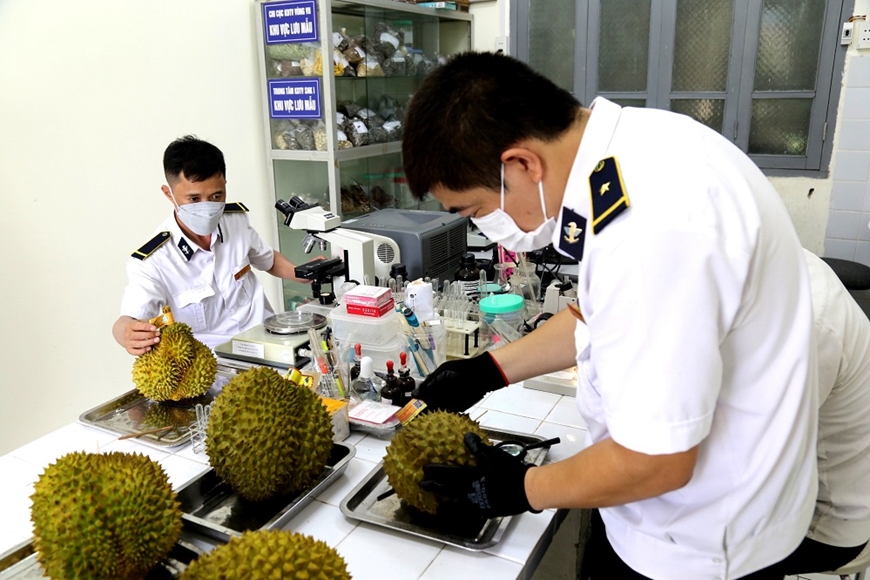Agricultures, Foods, News & Event
For Vietnamese agricultural products to penetrate deeply into the difficult market
Our country has many kinds of agricultural products that are highly appreciated for their quality and designs but are not known by many countries in the world, especially in fastidious markets such as EU, USA, Japan… why and how do Vietnamese agricultural products penetrate deeply into these markets?
Currently, not many agricultural products of Vietnam are recognized as registered geographical indications. Of the more than 90,000 trademarks and goods registered for protection in Vietnam, only about 15% belong to domestic enterprises, the remaining 80% of agricultural products are sold to the world market through trademarks. foreign.
Even in the domestic market, 80% of agricultural products are consumed without labels. According to the Center for International Geographical Indication and Trademark Appraisal, the National Office of Intellectual Property (Ministry of Science and Technology): By the end of 2022, there were only 141 applications for geographical indication protection in the whole country. for agro-forestry-fishery products, of which 116 products have been granted certificates of protection of geographical indications. Along with that, the number of collective certifications across the country has been granted is 1,682-an extremely modest number.

Due to the weakness in brand building and the slowness in registering for protection of trademarks and geographical indications in both the domestic and international markets, many items considered as strengths of Vietnam have been sold. in the name of another country or foreign business.
Typically, instant pho present in supermarkets in some EU countries and the United States is produced by Thai enterprises, while Vietnamese enterprises are still struggling in building their own brands. The brand of Phu Quoc fish sauce and Buon Ma Thuot coffee had also previously fallen into the hands of foreign companies. Recently, a valuable lesson was shared by the Meet More coffee chain when the company exported more than 40 tons of coffee and fruit products to Korea every month, but because of its subjectivity, it was rejected by its own partner. their importers in Korea quickly registered their intellectual property rights.
According to the assessment of the Ministry of Agriculture and Rural Development, China is still the most important export market of Vietnam’s agro-forestry-fishery products in the first 6 months of 2023. Most of the main agricultural products are exported. very good to China, such as rice and fruit, in which the type accounts for a large proportion, bringing a record of turnover is durian.
Specifically, Vietnam has exported to China 180,000 tons of durian, with a turnover of 850 million USD. It is forecasted that by the end of 2023, durian exports to China may exceed 1 billion USD. In addition, exporting lychee, dragon fruit and many other fruits to China is also very convenient. As a result, in the first half of this year, the export of vegetables and fruits in general reached 2.75 billion USD, up 64% over the same period in 2022.
As a farmer who grows lychees for export to Singapore, Mr. Pham Van Giang in Thuy Lam village, Thanh Son commune (Thanh Ha, Hai Duong) said: “In order for products to be exported, they must comply with strict requirements. The first is traceability; The second is that the partner will locate each garden in terms of output for fear of floating goods, so they must declare and make statistics closely.
According to Dr. Le Thanh Hoa, Deputy Director of the Department of Quality, Processing and Market Development of Agricultural Products (Ministry of Agriculture and Rural Development): “Losing a brand name into the hands of a foreign entity not only causes assets to be lost. loss, but also cause those products to be sued or prevented from being exported at the border gates of countries due to trademark infringement. As the country integrates more and more deeply, participating in many international treaties, once again, the lesson on trademark registration in other countries for Vietnamese businesses is more necessary than ever. In order to enter difficult markets such as the EU, the United States, Japan… these products must meet strict requirements on brand ownership, quality, and food safety. Therefore, we need to shift to sustainable farming with international certification.”
Comrade Nguyen Nhu Cuong, Director of the Department of Crop Production (Ministry of Agriculture and Rural Development), said that in order to improve the quality of agricultural products to meet export conditions, functional agencies need to provide accurate information about the market so that farmers and businesses can rest assured production. It is necessary to regularly provide analytical information on the market, product orientations, markets, standards, information on supply and demand, prices, including input-output for traders.
Many experts also believe that, when exporting to large markets, we not only focus on quantity, but through these markets to demonstrate the level of Vietnamese agricultural production, the level of linkages with other countries. Vietnamese commodity groups were able to meet the requirements of any market. Thereby expanding the process of organizing production to create livelihoods and profits for farmers.
In the context of difficulties due to reduced demand, the markets are very demanding on the quality of goods, especially Europe always leads the regulations on food safety, regulations on IUU (anti-fishing) illegal, unreported and unregulated products), anti-deforestation production regulations, in addition to the commercial factor, we need to focus on transparency issues in traceability.
The lesson of Ben Tre province’s successful export of green-skinned pomelo to the US market at the end of 2022 is an example. Only professionals who strictly follow the planning of planting, tending, processing and preserving according to strict technical standards can maintain their credibility, promote their brands well and bring sustainable benefits. long-term for farmers and businesses.

